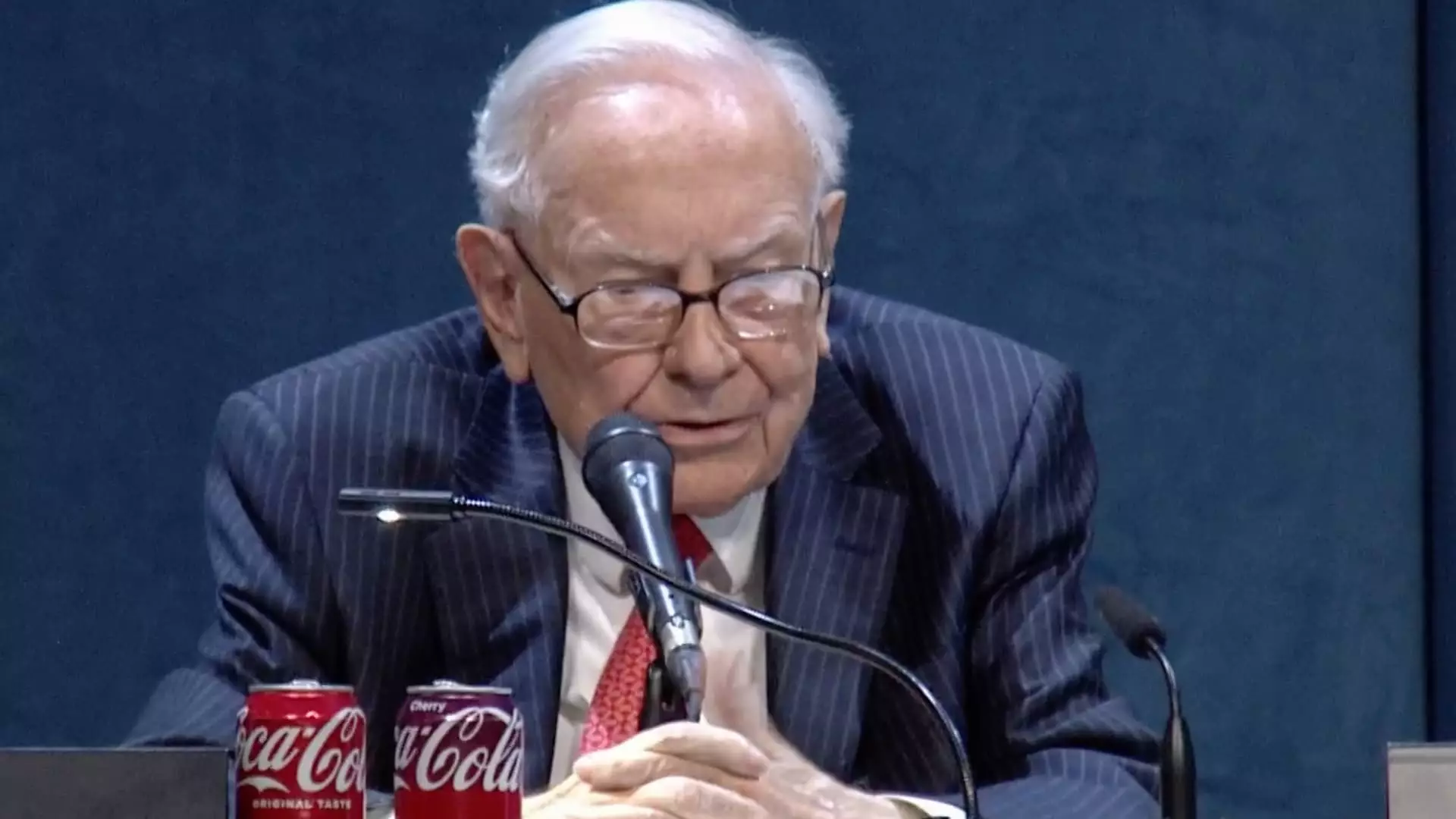10 Alarming Truths About Berkshire Hathaway’s Decline Since Buffett’s Announcement

Berkshire Hathaway’s stock is experiencing a notable decline, prompting a wave of skepticism amongst investors. This downturn comes at a time when Warren Buffett, the revered figure behind the company’s astronomical growth, announced his plans to step down. Rather than the anticipated surge in value, what we’ve seen is a dramatic fall of over 10% since Buffett’s announcement on May 3. Far from turning this anticipated transition into an upward swinging momentum, the stock is lagging behind even the S&P 500 by a staggering 15 percentage points. This discrepancy creates an unsettling narrative: is the magic truly tied to Buffett himself, and can the corporation sustain its legacy without him?
Buffett Premium: The Illusion of Stability
The so-called ‘Buffett Premium’ has historically inflated Berkshire Hathaway’s stock value, directly attributed to Buffett’s unparalleled investment strategy and capital allocation prowess. However, as the ghosts of corporate leadership begin to loom overhead, many shareholders are experiencing a bitter disillusionment with the idea that this premium can survive without its architect. Finance experts like David Kass have pointed out how the marked decline is surprising, especially since Buffett remains at the helm as Chairman until December 31. This sentiment signals a worrying lack of confidence among investors who, rather than embracing the stability associated with Buffett’s legacy, are questioning whether the essence of Berkshire Hathaway can endure.
The Metrics Behind the Meltdown
Looking beyond the stock price, the first-quarter operational earnings for Berkshire Hathaway revealed a concerning 14% slide, totaling $9.64 billion. This is more than just a number; it represents a clear signal that underlying business performance may not support the lofty valuations associated with the Buffett era. As one analyst highlighted, this could likely be an “algorithm-driven” sell-off. However, the reality is that the solid performance that once characterized the conglomerate is now becoming a liability—exposing cracks that were previously covered by the mystique of Buffett himself.
What’s Next? Potential for More Downturn
The scary truth is that the stock’s fate may worsen even further. Experts predict that the decline could reach anywhere from 5% to 20%, post-Buffett leaving. Such expectations could force a reckoning among shareholders who had hoped for a seamless transition of leadership. The lingering question remains: can Greg Abel, Buffett’s successor, genuinely emulate the cultural finesse and investment acuity that made Berkshire Hathaway one of the world’s richest firms?
The Broader Implications of Leadership Change
In corporate America, leadership changes often result in volatility, and Berkshire Hathaway’s current predicament underscores this reality starkly. With its market cap hovering above $1 trillion, any potential missteps during this transition period could severely impact stakeholder confidence. This paradox is particularly acute in the realm of financial investing—where sentiment and perception often propagate significant shifts in stock performance. If investor confidence continues to waver, the consequences could be dire not just for Berkshire’s stock price, but also for the broader market, which often looks to industry giants like Berkshire for clues about economic health.
In a landscape defined by uncertainty and shifting allegiances, the implications of Buffett’s impending departure extend far beyond a single stock. They signify a critical juncture for an institution built on legendary leadership and unyielding principles. How the company navigates this change could very well determine whether it remains the titan we’ve come to know, or slips into legacy status as a cautionary tale of dependency on a singular figure.





